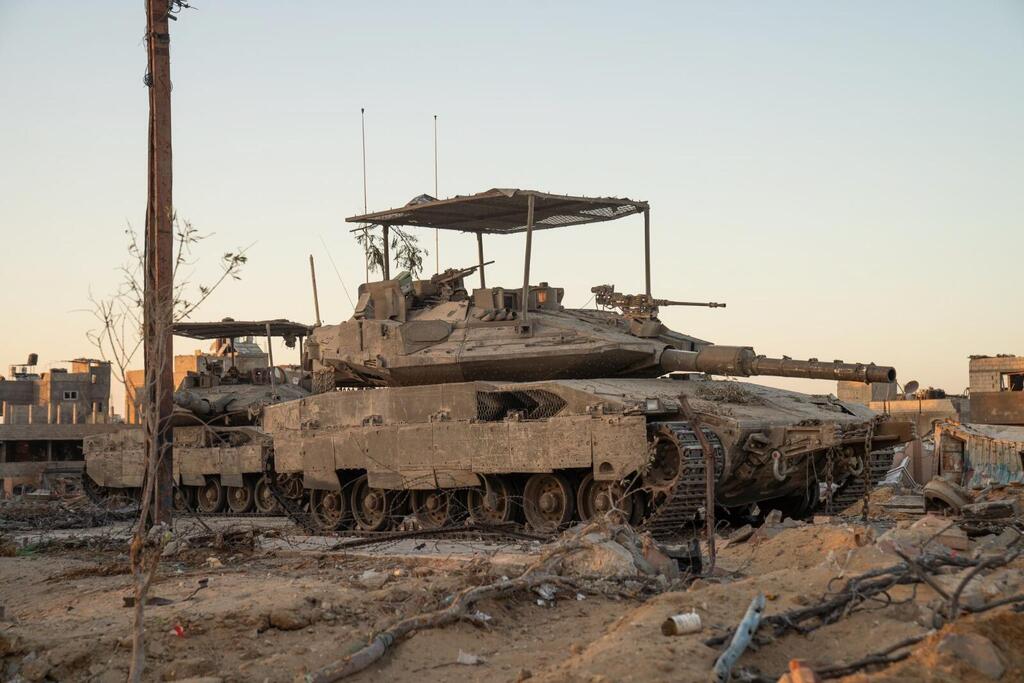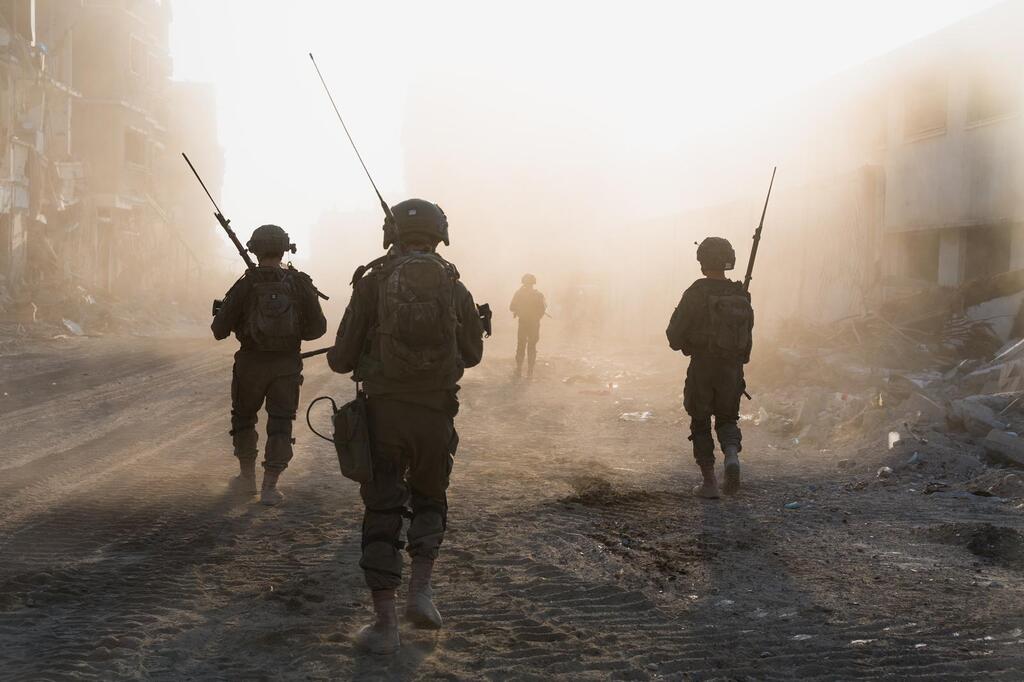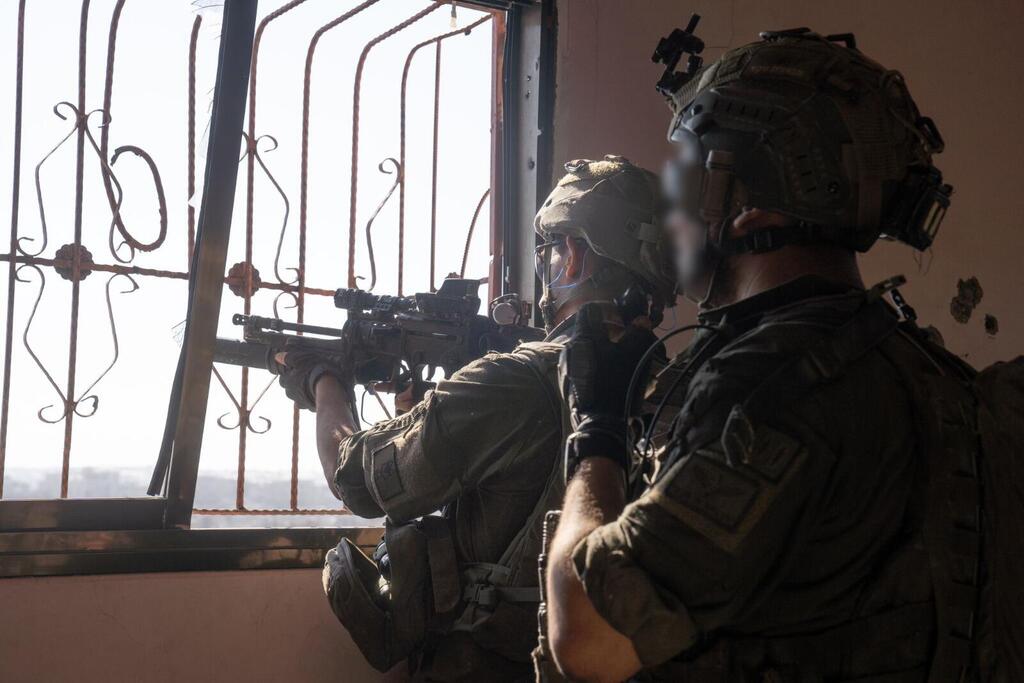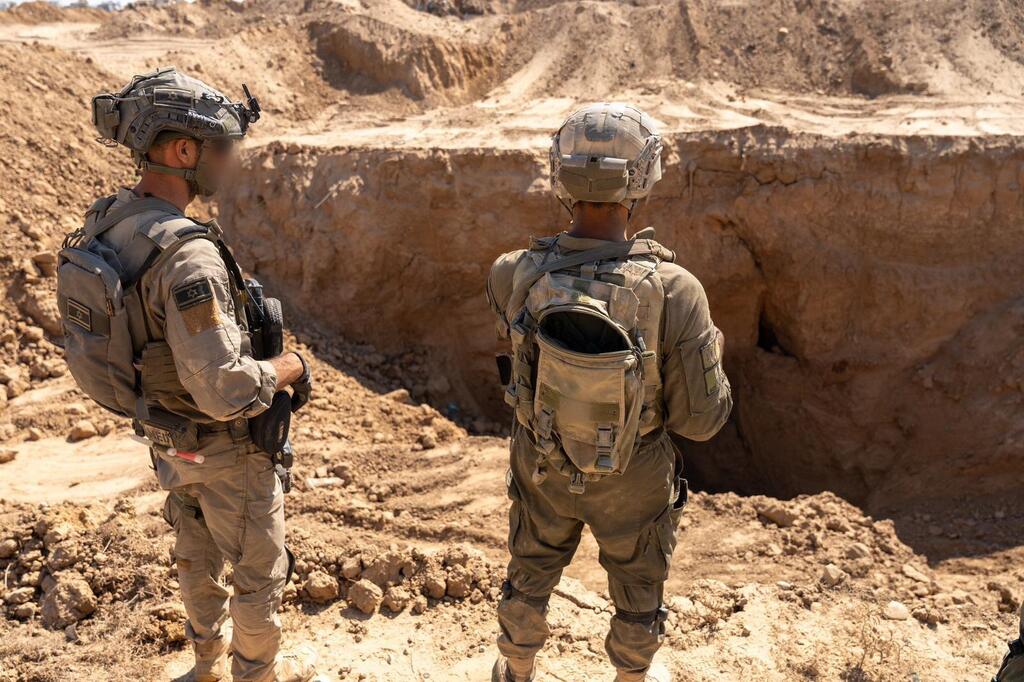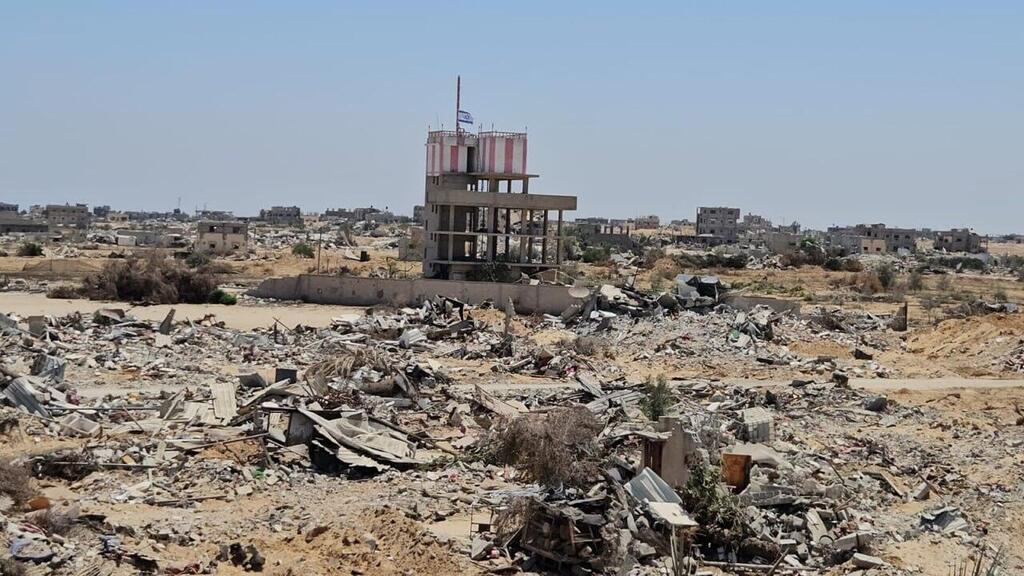In a May 8 interview, U.S. President Joe Biden said, "I made it clear that if they [the Israelis] go into Rafah... I'm not supplying the weapons." This statement followed the IDF's launch of an operation aimed at taking control of the Philadelphi Corridor and the city of Rafah.
At the time, Israel was facing an unprecedented international campaign to pressure it out of invading Hamas’ southernmost stronghold in Gaza. The global community expressed concern that Israel's actions would exacerbate the humanitarian crisis in Gaza, further escalating the already "catastrophic" situation.
Today’s public discourse over Israel's intent to maintain control of the Philadelphi Corridor highlights the denial within Israel's security establishment about the threat Gaza posed before October 7. This issue has now become a central topic of public debate.
Skeptics, egged on by former senior security officials, are leading part of the public to associate this objective, which is unequivocally based on security considerations, with political motives. They even describe it as a "spin designed to scuttle the hostage agreement" for some unknown reason.
"The entire Philadelphi issue is fake news," dismissed one senior official, stating that there was no need to "overstate the importance of the Philadelphi Corridor and the Netzarim Corridor in preventing Hamas from reconstituting since it has just been dismantled and since Hamas has been set back 30 years." Another official claimed that control of the Philadelphi Corridor is "meaningless", and even called it "the greatest sham since the establishment of the state."
Using the authoritativeness that comes with their security backgrounds, these former officials are trying to instill fear in the public at the prospect of taking responsibility for 2 million Gazans. They promise that the Gazan problem has been neutralized for the foreseeable future, and call on us to close this chapter on Gaza and go to elections.
To make matters worse, these irresponsible statements are compounded with the promise that had already been made in the past, according to which the Philadelphi Corridor can be retaken the moment it's needed to ensure our security. One of those officials even said that it was just a "45-minute drive" to retake the 14-kilometer stretch along the border between the Gaza Strip and Egypt.
The inconsistency reflected in these claims gives one pause. On the one hand, they claim that the Philadelphi Corridor is strategically insignificant, but on the other hand, this insignificant region could easily be retaken once the cease-fire expires.
To be clear, such statements provide false hope to the general public by implying that there are simple solutions to complex strategic and security issues.
Let's start with the basics: Hamas has never agreed to release 109 Israeli hostages in exchange for a withdrawal from the Philadelphi Corridor. The corridor was only one of the 29 “amendments” submitted by Hamas to the American-Israeli proposal. The other 28 pertained to the Netzarim Corridor, a complete withdrawal from Gaza, the end of the war, the release of Palestinian prisoners and the reconstruction of Gaza after the war, among others. Otherwise, one might presume that Israel's political leadership might have faced an entirely different dilemma.
Moreover, the decision to return to the Philadelphi Corridor after a cease-fire is not and will never be a tactical military decision that could be easily implemented, based solely on how fast a tank can travel, or how fast three brigades can be mobilized. As in any other wartime decision, it exists within a web of political interests, international pressure and a strategic objective vis-a-vis Egypt, the IDF and the Israeli public as well.
Lest we forget, Israel stalled for nearly seven months until May to complete the occupation of Gaza from the south. People worldwide reacted hysterically to a possible Israeli incursion into Rafah, as a global campaign aimed at making Israel "stop the massacre in Gaza" was waged through the mass media, the social media, protesters who took to the streets and decision-makers in foreign governments.
Drawn by the "all eyes on Rafah" trend, tens of thousands of demonstrators waving Palestinian flags took to the streets and occupied campuses in Europe, the United States and the Middle East.
Not a day went by in which the United Nations secretary general didn't make a declaration peppered with hyperbole on "the catastrophic humanitarian situation in Gaza", including a statement that "the horror must end."
Josep Borrell, the High Representative of the European Union for Foreign Affairs and Security Policy, blamed Israel for "provoking famine in Gaza," and called on the United States to halt arms shipments to Israel. When it came to pressuring Israel to concede and withdraw, it was no-holds-barred.
On March 25, ties between Israel and the United States soured to the point that the U.S. abstained from voting on a UN Security Council that did not tie the cease-fire to returning the hostages.
Secretary of State Antony Blinken repeatedly implored Israel not to insist on carrying out the operation in Rafah and the Philadelphi Corridor, which was allegedly devoid of any strategic logic and for which it would take many months to evacuate the civilian population. Yet the civilians evacuated within days, relocating to humanitarian zones the IDF had set up, as it directed an unprecedented humanitarian relief effort.
This is also where the question of legitimacy plays in. Israel piggybacked on the momentum and legitimacy that followed the October 7 massacre in order to carry out an action that would decisively defeat Hamas in Gaza. This opportunity may never return.
Starting a war to remove the threat hasn't been defined as a war objective since the Six-Day War. This is evidenced by the fact that Hamas' buildup in Gaza and Hezbollah's buildup in Lebanon were neglected.
After the 2005 disengagement from Gaza, the population was promised that a single rocket fired from Gaza would be met with a tough response, and those same people now feel that we'll be able to take over the Philadelphi Corridor after the first smuggling operation. Nothing could be further from the truth.
The notion that contrary to what occurred in the past fifty years, this time, Israel would act differently and wage an elective war is a delusion. It deludes the public since it involves a misunderstanding of the nature of the political and military echelons in Israel. This includes, first and foremost, avoiding an elective war, and preferring pinpointed operations such that the denial zone expands to the point where we have no other choice; not to mention a significant international arm-twisting effort that could constrain Israel's freedom of action.
A withdrawal from the Philadelphi Corridor would run contrary to Israel's interest of not going from one war to the next, but rather, preserving the conditions for a stable security situation for generations to come. The notion that Israel should be forced to reach a tipping point to reproduce its achievements is indicative of myopic thinking rather than strategic depth. It would be like turning off all of the traffic lights in Israel since they could always be turned on again once an accident occurs. These are not the principles upon which we can guarantee that we'll control the situation on the ground.
Israel never excelled at insisting on rock-hard principles at the heart of its security concept, and it often preferred either taking the risks involved in withdrawals in exchange for foreign troops being posted on the ground.
In the case of the Philadelphi Corridor, 750 Egyptian soldiers were posted, along with helicopters and APCs – or placing its security in the hands of foreigners – in the case of the Oslo Accords, the Palestinian Authority was empowered to fight terror in Judea, Samaria, and Gaza, instead of Israel.
During the Disengagement, the IDF aligned its position with Prime Minister Ariel Sharon and supported a full surrender of control of the corridor due to "the operational difficulty involved in controlling the narrow strip" and the fact that weapons were being smuggled through tunnels in any case, so for the IDF, surrendering control of the corridor was "the lesser of two evils".
If there's any major lesson that Israel could learn from the October 7 massacre, it's that metastasizing threats cannot be neglected, and that we can't remain completely blind to what's happening in Gaza, Lebanon, Judea and Samaria or Iran.
The massacre prompted the populace to demand that their decision-makers decisively defeat the enemy and remove the threat – a war objective that hadn't been set since the Six-Day War.
 Or YissacharPhoto: Michael Pavia
Or YissacharPhoto: Michael PaviaIsrael tried to avert war at any cost, following the policy of "quiet in exchange for quiet" and pinpoint operations, with the full blessing of the security establishment, keeping the political echelon in its comfort zone.
Our hostages must be returned, while applying massive pressure on Hamas and the Gazan population, clarifying the cost of losing, applying international pressure on Iran as well and breaking all of the rules that Hamas is trying to keep intact.
The Philadelphi Corridor must remain under Israel's full control, including above-ground patrols to prevent unrestricted movement, underground detection to combat tunnels and airborne activity to prevent the infiltration of drones. This is how we can sever the lifeline used by Hamas and other terror organizations and fulfill the war objective of destroying the organization in Gaza.
Though most Israelis understand the gravity of the situation and rally around this objective, fully recalling the river of blood that flowed in the attempt to fulfill it, it's unfortunate that this chorus isn't seeking to remedy this, but rather, to go back to denial.
- Or Yissachar is VP of Content and Research at the Israel Defense and Security Forum (IDSF).



